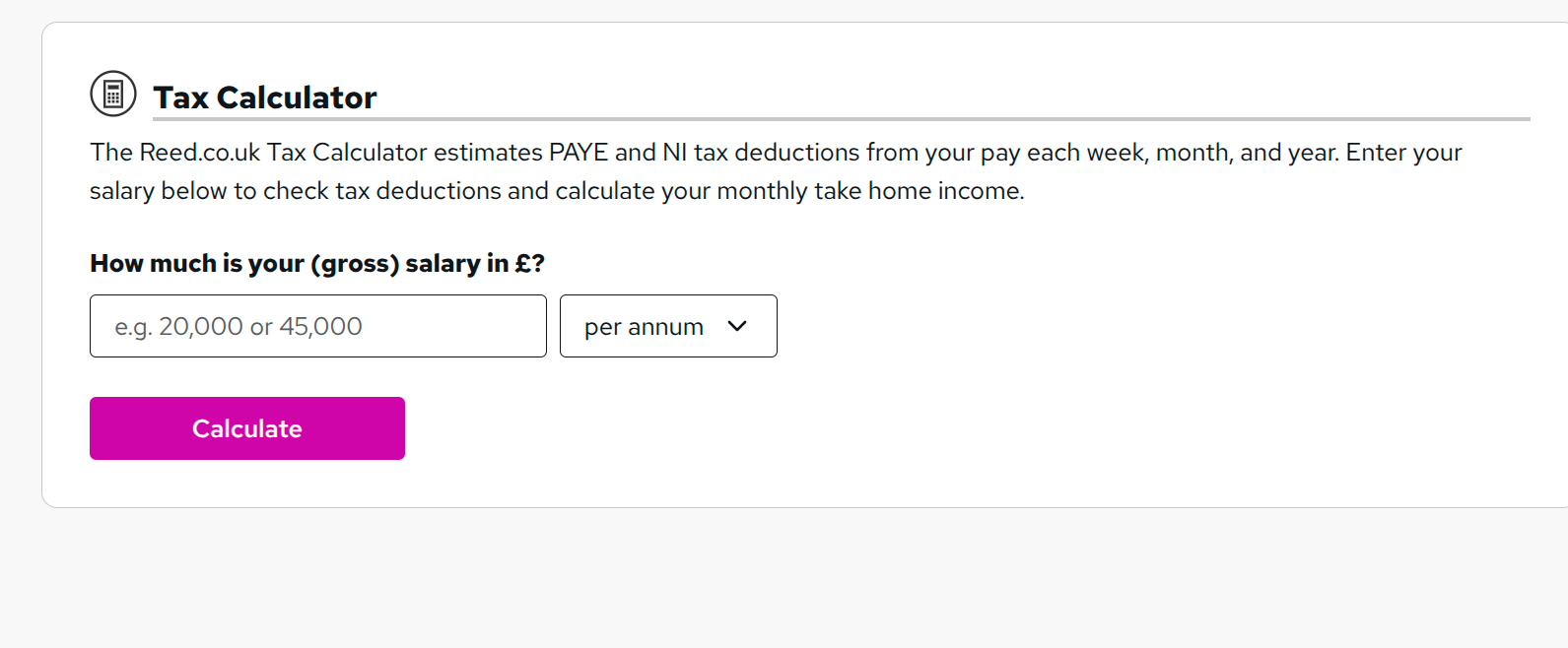If you’re struggling to produce web content for your professional services business, we’re here to offer our advice. Regulated industries often face the challenge of maintaining accuracy and professionalism without losing their readers’ interest. But we’re here to reassure you that it can be achieved – no matter how specialised the topic may seem.
As a content marketing agency, we’ve become specialists in writing for even the most technical industries, letting compliance criteria guide us while never dismissing the creative and persuasive touch. Writing website content for a regulated firm is all about balance, and ultimately, it should be led by your brand voice.
In this blog, you’ll learn how to write technical website content with the perfect mixture of:
- Clear and accessible language
- Authentic, trustworthy information
- Skimmable and attention-grabbing structure
Let’s get started!
What does copywriting mean for professional services?
Content writing, in this context, refers to creating marketing materials that position a professional services firm as a trusted authority. This can include thought-leadership articles, website content, and other informative resources for multiple platforms.
Your website should tick multiple boxes, often guided by your business KPIs, but generally, quality professional services content should:
- Represent your firm: convey who you are, where you’re based, and your core values.
- Demonstrate authority: build trust through clear signals such as policies, credentials, and professional expertise.
- Educate your audience: help people understand your services by offering useful, accessible content in a way that’s enticing and inspirational.
When professional services content is crafted thoughtfully, you can expect to inspire, persuade, educate, and simplify otherwise complex terms, jargon, and regulations for your readers.
Match your content to the readers’ understanding
First things first, step away from your own knowledge of the industry. Even if you’re a B2B business reaching out to audiences already familiar with the subject, it doesn’t mean they know everything you do – or that your content has to be dull. Chances are, your audience is less informed than you are, so your job is to dissect their level of understanding.
Each piece of content you create needs to be directed at a niche group, don’t cast the net to far out – this dilutes the messaging and often has zero impact. The best content delves into the problems or needs of a specific set of people, so you may find yourself approaching content differently depending on who you envision seeing it.
Before you go ahead and create a content plan, draft some audience insights using internal data and communication methods to decipher:
- How do they speak?
- How much do they know?
- What concerns do they have?
- Are they familiar with the jargon?
- How would they usually consume content?
- What do they want from a business like yours?
Once you realise that you’re talking to real people and establish the personas, you’ll be able to resonate with them in your choices of language, tone, and messaging. Just be mindful that this will vary, you may adopt a formal tone for other professionals and a more approachable style for prospective clients.
Top tip: Create a brief per content piece that outlines audience, preferred tone, intent and distribution method – this will make it easier to tailor your communications for the right audience.
Balance the usage of jargon
When it comes to writing content for any regulated industry, knowing how and when to use jargon can be tricky. Copywriting best practices suggest ditching complex language completely, but for an industry like yours, that could damage your reputation. So when is jargon appropriate and how do it affect your content?
| Exclusivity | Terminology | Clarity |
| Specialised language creates barriers between people ‘in the know’, meaning focusing on it will inevitably resonate with readers who ‘get it’. Depending on your target audience, you may want to selectively use jargon, narrow the field and purposely create exclusivity. | In the legal and finance sectors, there are going to be many cases where there are no alternatives to the phrases you need to mention. Where simpler substitutes don’t exist, sprinkle the terms sparingly and give a brief explanation so your readers understand their meaning without feeling overwhelmed. | Even when using necessary jargon or specialised terms, always prioritise clarity. Blend technical language with plain explanations, examples, or analogies so your content remains approachable for all readers. |
- Top tip: Consider building an onsite glossary for terms that must remain technical, that way the reader has something to refer too without bouncing off the site to search definitions.
Use a clear, scannable structure
In this day and age, nobody wants to scroll and sift through reels of copy. No matter how complex and thorough the content may be, think less dissertation and more bite-sized measures.
Build a wireframe or blog template that spaces content out, allowing room for visual aspects that keep eyes firmly engaged on the page. Make use of strong headings, bullet points, numbered lists and infographics – anything you can think of to make technical writing look far less intimidating to the average reader.
Even if you’re dealing with a specialised or sensitive topic that couldn’t possibly feel fun, how you design the page, chunk copy, and create matching visuals brings the creativity and engagement your audience needs to actually read and understand your content.
Let keyword research guide your content
Every website needs to follow basic SEO principles to remain visible in search engines. While this blog focuses more on engaging readers with thoughtful copy rather than purely optimising your site, it’s still worth touching on the value of keyword research.
Estimated search volume for relevant terms reflects demand and trends, which can guide your content plan. Similarly, popular questions around your services indicate your audience’s knowledge level. If you notice many questions revealing knowledge gaps, you should capitalise on that opportunity.
Here’s an example of how different keywords can dictate strategy and writing style:
| Long-tail keyword | Content type | Writing style and audience |
| What is corporation tax? | Blog/glossary | Beginner-friendly, providing examples and demystifying the jargon |
| How to file a limited company tax return | Step-by-step guide | Practical, clear instructions for small business owners |
| Differences between LLC and LLP | Blog/article | Informative, professional, targeting readers with some business knowledge |
| Tax deductions for freelancers | Blog/FAQ | Accessible, engaging, and explains terms simply for self-employed readers |
| Corporation tax deadlines | Quick reference/checklist | Concise, skimmable, aimed at professionals needing fast answers |
Focus on outcomes, not just complex processes
It’s easy to get carried away with lengthy explanations of services and regulations. It’s also easy to write paragraphs about how great your business is. The real lead winner? Explaining HOW your service helps and what you can achieve for the client.
Good copy is about writing for the reader, getting into their minds, and using persuasive techniques to capture their attention. It’s not about showing off what you know; it’s more about clarifying what people gain by turning to you, making every word count toward solving their problem.
Always flip sentences from ‘we do x’ to ‘you get x’. Use power words, write concisely and don’t overwhelm the reader with complicated jargon.
Address misconceptions and bust the industry myths
Marketing a professional business is such an overcrowded space that comes with many challenges. You may find that many other websites in your industry publish similar content; that’s where you need to find ways of standing out.
Become memorable and build better relationships by weeding out myths or jumping on the back of forums where concepts in your industry have been misunderstood. Correct the wrongs, bust the myths, give genuine answers that actually help. Doing this not only positions your brand as a trusted expert but also prevents readers from making costly mistakes – something they’ll definitely remember you for!
Show people that you understand their challenges and can hold their hand safely through the complexities and misconceptions of your field.
Use real-world examples to make concepts relatable
No matter what your professional services business offers, storytelling helps readers retain information and apply concepts to situations they can relate to, far better than abstract explanations. Case studies and real examples not only demonstrate your authenticity and credibility, but they also break down what you do and how you do it in a way that’s easy to understand.
For example, take Dental Law – a dental negligence firm. To help everyday people with limited knowledge of the law, they document real cases showing how their services have assisted clients, making complex legal concepts tangible and relatable.
Create interactive, easy-to-use tools
In many professional industries, content often arrogantly assumes the reader already knows everything, leaving them confused by calculations, eligibility checklists, or dense procedural instructions. Your opportunity is to be the source of clarity and helpfulness. The friendly website that your audience turns to for uncomplicated guidance they can actually use.
Interactive tools, such as tax calculators, eligibility quizzes, and process checklists, are ideal for this purpose. They turn complicated topics into something actionable and interactive, reducing the amount of manual research users have to do.

(source: Reed.co.uk)
For example, a tax deduction calculator or a compliance checklist help people understand exactly where they stand, what steps to take, and how to make decisions confidently without feeling drowned in paperwork and endless pages of jargon-heavy information!
Put your trust in a writer with expertise in your field
Sometimes, the most effective way to guarantee a strong content campaign is to hand it over to professionals. It’s important to find experienced writers with specialist knowledge of your industry and an understanding of how to write for multiple audiences and purposes. Here at Embryo, we have a full team of content writers who are used to turning their hand to just about anything.
With multiple clients in the legal and finance sectors, our writers have gained unrivalled topical knowledge and the impressive ability to curate content that balances compliance, creativity, and clarity.
If you’d like personalised advice or assistance with putting together a strong content strategy, get in touch.
FAQs
Can content marketing still work in regulated industries?
Absolutely! SEO for regulated industries is not out of reach, even with compliance and regulations in place. There are multiple ways of engaging your audience in a highly-regulated environment, but its important to stick to standards and guidelines. At Embryo, regulated clients complete a compliance checklist, allowing us to formulate ideas and write content around strict guidelines. Content marketing for professional services is more about being a thought leader, offering genuine advice and showcasing authority.
How do I handle topics that are highly sensitive or technical?
Sometimes, there’s no avoiding important topics, no matter how technical or sensitive they may be. In these situations, it’s important to use correct terminology, careful phrasing, and include disclaimers where needed. If possible, partner with an internal or external subject matter expert to discuss the topic and understand how a professional would approach it.













